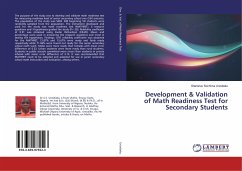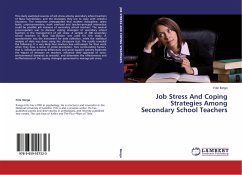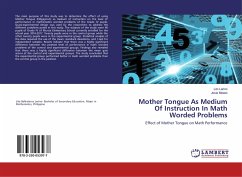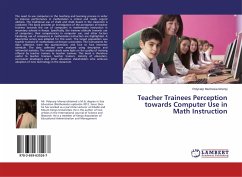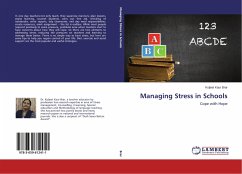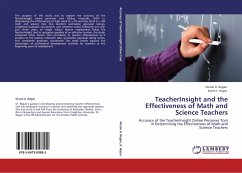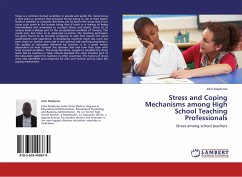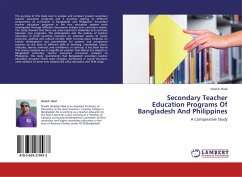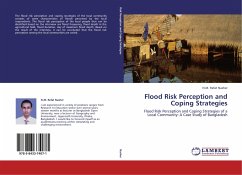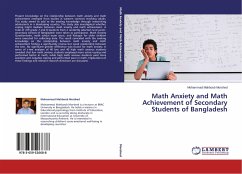
Math Anxiety and Math Achievement of Secondary Students of Bangladesh
Versandkostenfrei!
Versandfertig in 6-10 Tagen
41,99 €
inkl. MwSt.

PAYBACK Punkte
21 °P sammeln!
Present knowledge on the relationship between math anxiety and math achievement emerged from studies in western contexts involving adults. This study aimed to add to the existing knowledge through researching adolescents in a developing country. The study also investigated whether coping might mediate between math anxiety and math achievement. A total of 419 grade 7 and 8 students from 2 randomly selected rural junior-secondary schools of Bangladesh were taken as participants. Math Anxiety Questionnaire, math school exam score, and Kidcope for older children were executed for collecting data. ...
Present knowledge on the relationship between math anxiety and math achievement emerged from studies in western contexts involving adults. This study aimed to add to the existing knowledge through researching adolescents in a developing country. The study also investigated whether coping might mediate between math anxiety and math achievement. A total of 419 grade 7 and 8 students from 2 randomly selected rural junior-secondary schools of Bangladesh were taken as participants. Math Anxiety Questionnaire, math school exam score, and Kidcope for older children were executed for collecting data. The result coincided with the existing knowledge on the relationship between math anxiety and math achievement finding a significantly inverse but weak relationship between the two. No significant gender difference was found for math anxiety. A series of t-test analyses of 40 low and 40 high math anxious students revealed that low math anxious students employed more active coping and performed better in math, while high math anxious students used more avoidant and negative coping and performed poor in math. Implications of these findings and relevant research directions are discussed.



